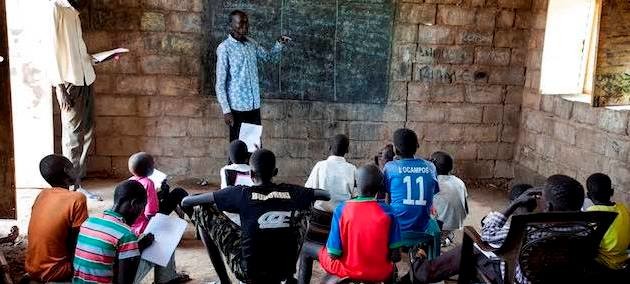South Sudan’s government is not sufficiently prioritizing children’s education, the United Nations children’s fund UNICEF said today.
While the internationally agreed international standard for education allocations is 20 per cent of the national budget, South Sudan only spends 5.6 per cent for 2019-2020, according the national budget.
This is the lowest public education spending in East Africa, recent studies say.
In a statement extended to Radio Tamazuj this morning, UNICEF said 2.2 million children do not have access to quality education in South Sudan, jeopardizing the future of the entire country.
As the country prepares for a new academic year, UNICEF is calling on the government of South Sudan to prioritize education in its government spending.
“Education must be a top priority for the Government in South Sudan and sufficient allocations must be made to ensure every child in the country can go to school and learn,” said UNICEF Representative in South Sudan Dr Mohamed Ag Ayoya.
“By investing in the education of its children, South Sudan is investing in the future and development of the whole country,” he added.
The call for more public spending on education in South Sudan, comes as UNICEF is launching the global report ‘Addressing the learning crisis: an urgent need to better finance education for the poorest children’.
Nearly 1 in 3 adolescent girls from the poorest households around the world has never been to school, the report says – launched as education ministers from all over the world are gathered at the Education World Forum, ahead of the World Economic Forum annual meeting.
The paper notes that the lack of resources available for the poorest children is exacerbating a crippling learning crisis, as schools fail to provide quality education for their students.
In South Sudan, lack of public investment in education is contributing to the critical shortage of qualified teachers. An estimated 62 per cent of primary teachers and 44 per cent of secondary teachers are not qualified. Also, many teachers leave the profession due to salaries not being paid on a regular basis.




